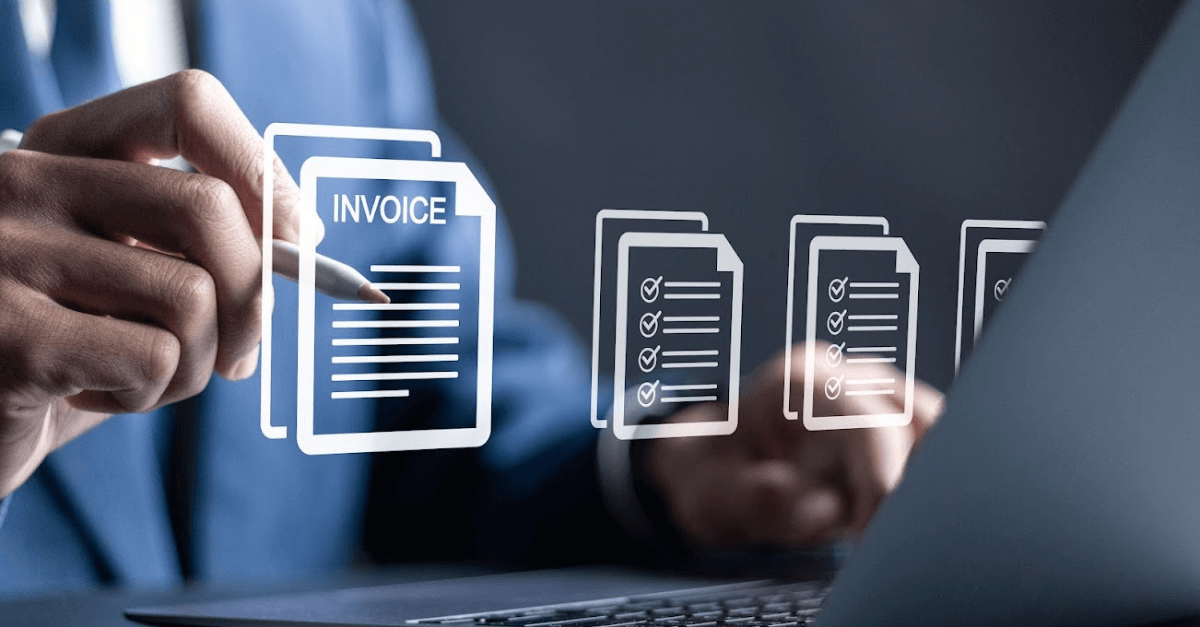What to consider when choosing an electronic invoicing provider
Understand what medium and large businesses should consider when choosing an electronic invoicing provider for their company.

Working with an e-invoicing provider comes with immediate benefits - time and cost savings, reduced human error, tax compliance and digitalisation, just to name a few. But, before you scroll any further, if you’d like to find out exactly how e-invoicing works, take a look at our blog.
What to consider when choosing a provider
It’s important to understand that all e-invoicing providers are different. Some will be more advanced in their capabilities, providing automated invoice processing, tracking and payment, while others may offer more simple invoicing capabilities; or will focus only on a small part of the supply-chain process. Take a look at the following capabilities and focuses to understand what you may need to consider.
Inbound and outbound options
A provider’s inbound and outbound capabilities are important and can be the main reason to choose one provider over another.
Inbound
In terms of inbound functionality or the procure-to-pay process, it’s good to understand how advanced the provider’s offering is. For example, the automation level their solution provides, does their technology include AI data extraction, where the service extracts the information automatically and checks for accuracy? Or would a business still need to manually review each and every invoice received? Can it be tailored around my business processes?
Similarly, can the provider interpret any inbound data format and translate it seamlessly for a business’ existing systems, saving time and effort for the workforce? This is one of the key features of Unifiedpost Group’s inbound solution, Collect.
Outbound
When considering outbound elements or automating order-to-cash processes, can a business create e-invoices in any format and send them via any channel? Or is there a limitation in connecting more than one ERP system? This is especially vital for larger companies who need to send invoices to businesses in several countries with different regulations.
It’s likely that providers have varying levels of global reach and interoperability. Some may offer e-invoicing solutions that work regardless of country or format (such as our Channel solution) while others may be limited in their global scale.
Tax compliance and e-invoicing regulations
The subject of tax compliance is an important one for any business looking for an e-invoicing provider.
Increasingly, organisations of all sizes are digitalising their invoicing as countries and tax authorities put mandatory legislations and processes in place. With authorities doing this to improve VAT visibility, efficiency and to combat fraud, it makes sense to choose a partner who can navigate global complexities as no two countries, formats or mandates are the same.
An e-invoicing provider should possess the correct capabilities to connect to both local tax platforms and secure, international networks such as Peppol. Interoperability is a key selling point for any provider and plays a big part in ensuring you’re able to connect with local and international networks too. Interoperability is the ability for different e-invoicing systems to exchange invoices seamlessly and automatically, no matter what software or system is used.
Unifiedpost Group is compliant in over 60 countries around the globe and can connect to international interfaces such as Peppol and EESPA.
Integration and value-added-services
When selecting an e-invoicing provider, it’s practical to choose a provider that can ensure minimal disruption to your current business set up. This means opting for a provider which can integrate into existing enterprise resource planning (ERP) and accounting software. Especially without any major IT work required.
Alongside the benefit of seamless integration comes the value-added services which some providers will offer. These can include:
- Payment links to invoices – Taking customers to a simple online page to complete the transaction without any additional infrastructure needed.
- Digital secure archive – Quick and secure access to older files without taking up physical storage space. This can be vital for local archive laws that may require you to securely store your financial documents for a certain number of years.
- Electronic signatures – Adding an electronic signature has the benefit of guaranteeing your invoices' integrity and authenticity, which (beyond bringing more confidence) may be a legal requirement in many countries.
- Workflows – The ability to define rules and processes to make incoming invoice approval that much easier.
Are they trusted?
Finally, proven expertise should be taken into consideration when making your choice. Is the provider trusted by a significant number of businesses already and do they have an existing global network?
Unifiedpost Group operates the leading network for e-invoices, e-payments, e-orders and e-financing in the form of Crossnet. Over one million companies all around the globe already exchange their documents through Crossnet.
Take the correct next step in your e-invoicing journey
Whilst there is a lot of information to take in when choosing your e-invoicing provider, the journey can be a simple one. Make an informed choice by doing your research based on your company size and needs.
At Unifiedpost Group, we offer solutions for all. Medium and large businesses should explore our Channel offering, while smaller businesses should consider Billtobox.
Tell us your business needs, and we’ll find the perfect solution
Get in touch

